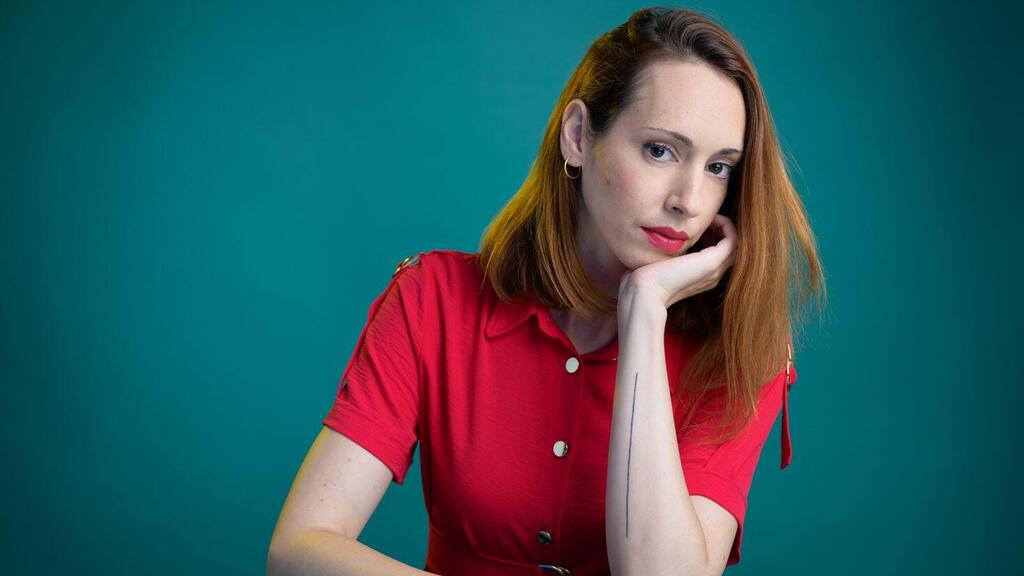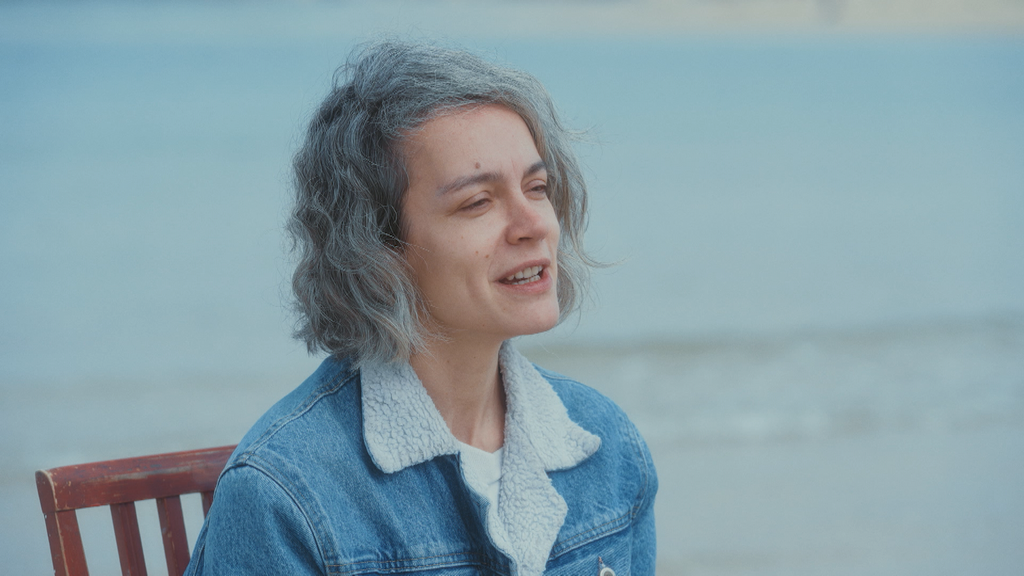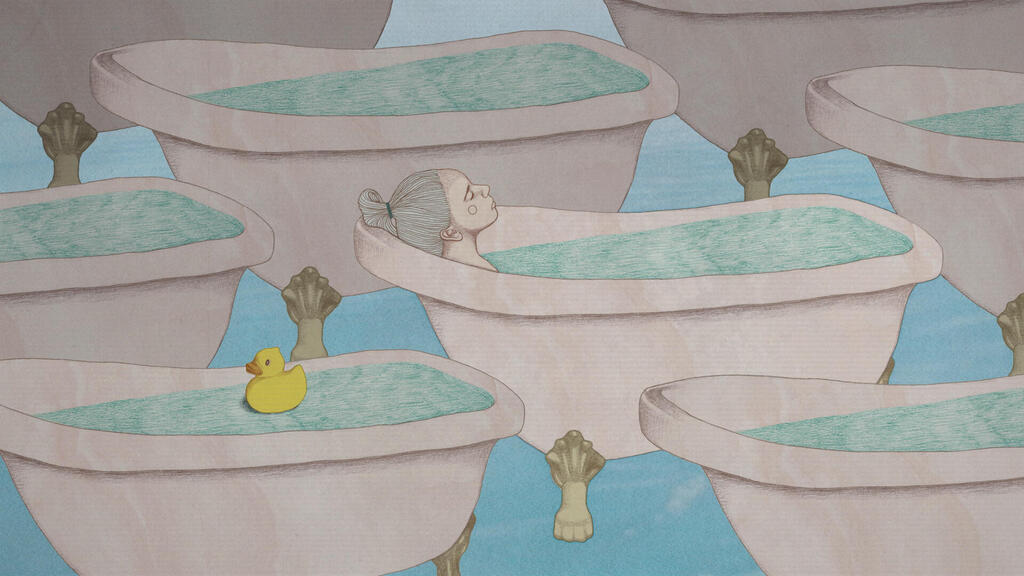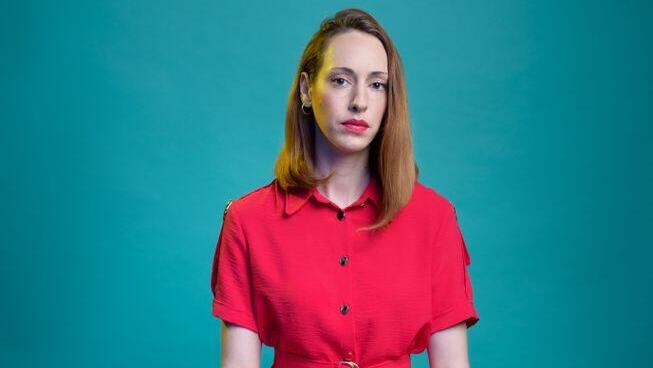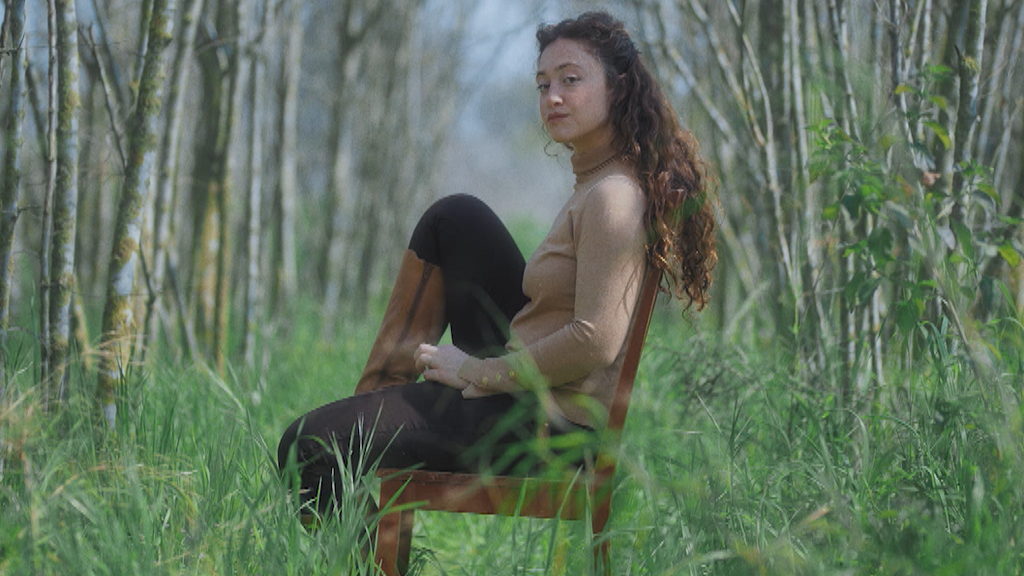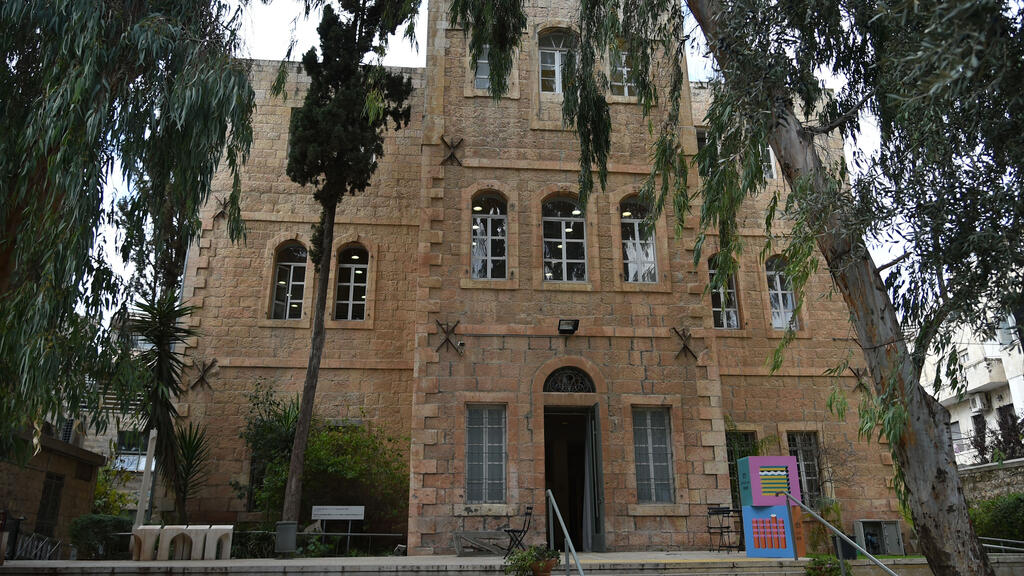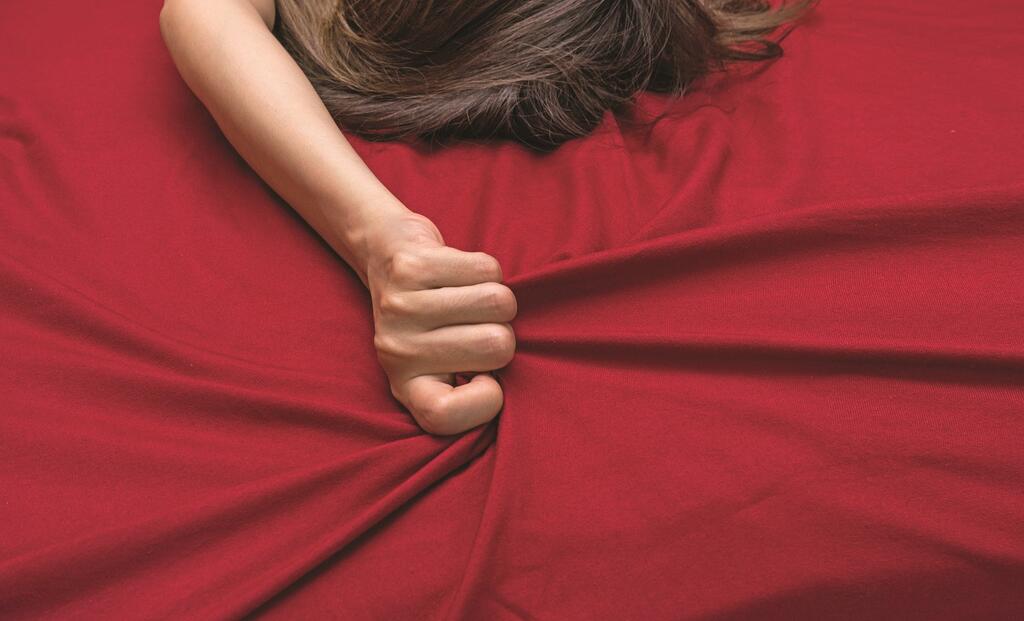Kiryat Yovel, the Jerusalem neighborhood where 31-year-old illustrator Netta Haim grew up, has become much more religious over the years.
Spending her childhood in a Haredi neighborhood has helped her understand the importance of exposure as opposed to concealment and repression. “Next door, lived a Haredi family with eight or ten children – I don’t even remember. My sisters and I used to talk to them from our balconies and they were fascinated by our stories about the scouts and Disney movies.”
“At some stage, the children told us that their parent’s wouldn’t let them talk to us anymore, so we stopped talking - a bit strange for children playing in next-door gardens. The family had a boy about the same age as me and my sisters. As he approached adolescence, he started looking away as he passed us. He'd sometimes actually turn around and go back into the building.
“The Haredi family next door could peer into our house and watch our television. While we were still talking, the Haredi children told us they that like peeping in while my sisters and I were watching cartoons. We would sometimes even see them huddled together, peeking into our house. I thought their curiosity was charming”.
One day, I noticed that their parents had blocked up the window overlooking our house with nails and wooden planks. It really hurt me that these children’s curiosity, their desire discover new things, was being crushed.”
Do you have other childhood memories illustrating concealment?
"There was something similar when a Haredi boy in our building liked complementing my mother on her earrings, and I kept thinking that at any moment, all the religious restrictions would be draped over his healthy innocence, and he wouldn’t even be allowed to be happy about jewelry.”
This is why Netta's first Kan Digital series is named Begalui (out on the open). Netta believes that to enjoy healthy sexuality, we have to let ourselves talk about it freely and openly - that it must be normalized, not hidden. “I think that growing up secular next to Haredim who, from an early age, are forced to suppress all their healthy desires and curiosity, made me do the exact opposite in my own life. I understood how important not suppressing things was for both body and soul. Eventually it all flows into our sexuality.”
The new series currently has three ten-minute episodes, showing testimonials of 20–35-year-olds alongside animated illustrations created by Netta. The first episode deals with the female orgasm and shows three women in their 20s and 30s sitting on a large chair in a natural outdoor setting. One after the other, they face the camera and unashamedly, tell us about their first orgasm – or what they think was an orgasm, and talk about how they feel about this elusive and marvelous sensation.
“An orgasm is something flexible. It’s dynamic,” the first says. “Sometimes I feel that the orgasm is quick and powerful, and sometimes I feel it’s rather calm.” The second says: “Each one is unique and special in its own way. As I’ve learnt to be in the moment, I’ve discovered that my body can handle a lot more pleasure than I thought.”
The second episode deals with erotic dreams and their effect on our relationship with our partners. The third episode connects the two, addressing sexuality and creativity. “I chose three subjects where I felt I could fully bring myself. They are connected. Although each stands alone, together they tell one story, functioning together as one work.” Netta stresses that the series is not intended to provide listeners with advice, but rather it seeks to present sexuality openly, so that people will be able to finally talk about it.
Do you feel that in Israel in 2022, sexuality is still being hushed up?
“Definitely. After my army service, I worked as a camp counsellor in America and I made friends with some British people. I was very surprised by their conversations about sexuality. I was shocked at how open they were. I really didn’t know how to take it. Israel’s very conservative. Even my very creative work friends tell me that they’re too embarrassed to share their orgasm experiences online.”
“Israel isn’t open enough. This was clear to be when the series’ teaser went up. There were so many ignorant responses. People just aren’t open to it. People wrote that we were 'perverts,' saying, 'Why do we have to hear about your orgasms?' But at the end of the day, we all like sex. It’s like food. I also feel that it touches them in a personally painful place. That’s why I was so happy to see other people responding to them with more positive ideas.
“The breakdown of responses is also interesting: our content goes up on TikTok, Instagram, YouTube and Facebook and you can really see how each platform has a different crowd. Instagram’s Millennials and Gen-Zs are most supportive. On Facebook, the responses are very different.
“The series’ teaser was taken down. It was probably the shot of the naked model that did it. The picture was taken from the side and you can’t really see anything anyway. I know they’re very careful. If you don’t want your content taken down, you can’t write 'sex,' so you see people writing 'segs' with a deliberate spelling mistake. I write s**x with two asterisks.
“I think it makes sense. We’re surrounded by an overload of stimuli including sexual content, and so we do it less. It’s a bit like people reading less now because there’s so much Netflix to watch. You have to focus a little to reach sexuality.”
“I met my partner before there was Tinder. I didn’t have options. I just had him. Today it’s different. People don’t really get to a place where they can be themselves and I hope that when I have children, I’ll be able to educate them differently. Parents have enormous responsibility about how their children perceive sexuality when they grow up. I’m very grateful to my mother for how she treated the matter – like it’s the most natural thing in the world”
What kind of sexual education did you have at home?
“It’s not that sex was openly discussed, but my mother never told me there was anything wrong with sex. When I got my first period, I called to tell my mother. She jumped for joy and bought me a bracelet as a gift. I told my mother about my first kiss. I would tell my mother everything.
“Not having a boyfriend until I was 21 was very hard for me. I was shy. Whenever I told my mother that I didn’t have a boyfriend, she’d cry with me. I think it’s terrible that some girls are made to feel guilty about their sexuality. I don’t remember if I talked to my mother about what an orgasm was, but I she never gave me the impression that I was doing anything wrong.”
Maybe it was easy to share with your mother because she wasn’t judgmental
“Yes. This is what I shared in the series – that I don’t judge when I interview. Everyone’s been through so much in life, so what’s the point of judging? People who write negative talkbacks about the series – I don’t know where it comes from or what their life experiences are, so I don’t judge.”
Netta tells us she plucked up the courage to write a series about sexuality following a visit to her psychologist. “I spoke to my psychologist a lot about my dream of creating content about sexuality, but it didn’t seem realistic at first. I thought ‘what are the chances?’ I’m a designer, not a producer and I’ve never interviewed anyone."
She added: "there were so many hurdles. And then she said to me ‘Just write. Start writing for yourself and see what happens.’ So that’s what I did. I really enjoyed it and it started flowing. I watched some TED Talks and read some articles. I even found paintings relating to the subject. I knew that I wanted to interview people who’d bare their souls and would share personal things – not stuff we’ve already seen.”
“The idea of the chair was also inspired by my sessions with the psychologist. Every episode has a chair. The interviewees interact with it. They kick it and use it. The idea is that during psychological treatment sessions, the chair’s a very important object. Every visit to the psychologist, I’d sit in the chair, feel the armrests and the upholstering. It’s like in a seat in a confession box. You can begin opening up. “
She was born 31 years ago in Jerusalem, the eldest child of a father serving as a director in Israel’s prison services and an artist mother. She’s been drawing ever since she can remember.
She completed a BA in Visual Arts at the Bezalel Academy of Arts and Design in Jerusalem and has been working for the past four years as a designer and animator at the Kan Digital studios.
“We celebrated our third wedding anniversary yesterday,” she says, her eyes lighting up as she begins talking about her own husband.
“My cousin introduced us. I was very shy and suddenly I found the courage, just like now I found the courage to do the series, so I began asking people if they had anyone for me to meet. I was at my cousin’s one day. He’s older than me. He showed me a picture of a guy who was studying with him at university. At that very moment, I simply fell in love with the picture.
"He sent Dan a picture of me, with all my red hair. Dan was immediately enthusiastic. We started writing to each other on Facebook and I quickly realized that he was too shy to ask for my phone number. I got tired of waiting, gave him my number, and... it’s been ten years. “
You married your first serious boyfriend. He was also the first guy you moved in with. Did you have any sexual experience before him?
“Nothing serious. Sexuality has been very important in my life and I discovered the orgasm at a very early age but I only realized it with a partner when I met Dan. I had all my significant experiences with him, including losing my virginity. I think it’s amazing that it’s still working ten years later.
“Monogamy is very complex and however much I cast doubt on things I see, monogamy is the path for me. I listen to a lot of podcasts about polyamory and open relationships and we talk about it sometimes, but at the end of the day, we’re monogamous. So yes, it’s not the magic you feel at the beginning. We had two years of being drunk with senses. I still get excited, and we still discover new things.”
What have you learnt from working on the series?
“I thought that I knew enough about the female orgasm and I assumed the experiences of the women interviewed would be more or less like my own. I was surprised to learn how differently women experience it. It really opened up a whole new world for me. I was glad to realize that I have a lot more to learn about my own sexuality.
“For example, I was sure that everyone fantasizes about the same thing when they masturbate – about someone they know. But I discovered that’s really not true. I was surprised by the responses, especially Oliana who says she doesn’t fantasize about anyone she knows and her story about nuns was mind blowing for me. Or when she talked about masturbating in the bath... and I never... I don’t know why… just haven’t.”
“The team working on the series also had very open conversations. One woman told us that she once unexpectedly orgasmed at the gym. Another member of our team realized, during the interviews, that she wasn’t sure she’d ever orgasmed. It was fascinating and fun because I felt the interviews were workings.
“For me, the orgasm is the cure for both the body and the soul. It’s my meditation. It’s the cure for my headache, my sleeplessness, my anxiety and my concentration problems. My brain is like lots of monkeys working together, and at the moment of orgasm, no thought can enter my head, or as one of the interviewees in the series called it ‘a minutes’ silence’. I don’t know what I’d do without it. “
How is this for you as a woman? Has it always been easy for you to reach orgasm?
"It’s been easy for me ever since I was a child. I think I simply realized that something was happening to me that was fun for me to feel. I remember it as a little girl, then I don’t know what happened for a few years, and then I was an adult.”
You second program deals with erotic dreams. Is this something personal for you?
“Definitely. I knew I wanted to find three people who’d share an erotic dream that have affected them, because I also have dreams that have affected me and have taught me things about myself.”
Anything you can share?
“I used to have erotic dreams and I realized that there was someone I was attracted to – but he was my boss. At first, I didn’t understand why I was dreaming about my boss, and then I realized that there must have been something in him that impressed me. After that, you can’t look at these people in the same way. Something in your energy towards them changes after the dream. It's fascinating. We mustn’t ignore it. A dream is a world of its own and it’s wonderful, even more than life when you’re awake.
"You show the positive side of erotic dreams: the women interviewed say that the dreams created more intimacy between themselves and their partners, but there’s a more threatening side to erotic dreams – like when you’re married and you dream about your neighbor or your boss. That’s likely to make you feel anxious or guilty.
“I think a dream is a place that facilitates things. It’s another space for pleasure and fulfilling passions, that maybe in your awake-life, you can’t fulfil.”
Researchers talk about a negative effect of pornography of losing the ability to imagine things
“I’ll always chose fantasy over porn. What can be more fun than taking a moment for yourself, lying on the sofa and creating a story in your head? It’s much more fulfilling. You even feel you’ve done a bit of work.
“I remember in eighth grade a boy played a porn film and all the boys stood watching. I was very naïve. I didn’t even know what a ‘French kiss’ was until much later. I thought it was a kiss from France. When I saw the other children watching the film, I asked what it was. I didn’t understand what I seeing, but I was intrigued. Everyone’s curious, and while porn mainly has negative sides, there’s almost nobody who hasn’t slipped up... “
What next?
“I don’t like imagining the future. I used to be very anxious about what would happen next. I had enough. I’ve been married for three years. People are already talking to me about children. I didn’t plan for you to interview me, and here, it’s happening and it’s wonderful. I’m not making any plans.”


